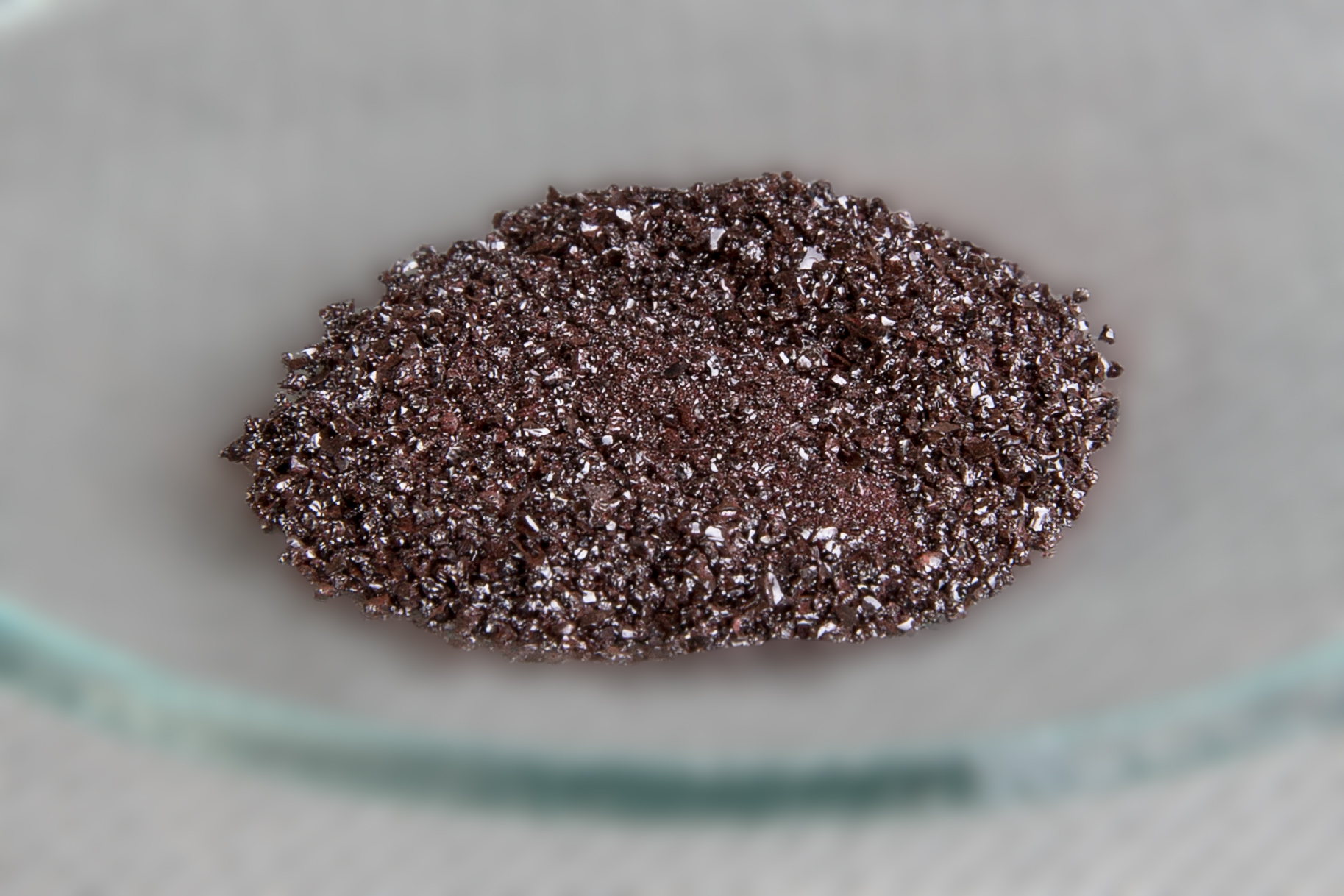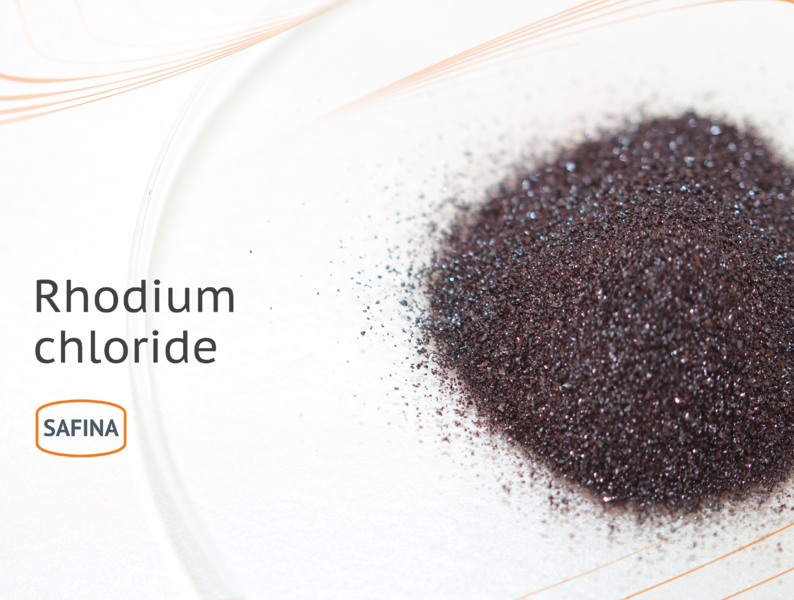Rhodium chloride hydrate is a dark red hygroscopic substance and is a common raw material for the preparation of other rhodium compounds and is also used as a catalyst in organic synthesis, e.g. direct conversion of methane to acetic acid, for the isomerization of alkenes and in the production of other compounds.
Rhodium chloride hydrate, also known as rhodium trichloride hydrate, is a dark red hygroscopic substance with a molecular weight of 263.31 g/mol and a chemical formula of RhCl3. x H2O. It is widely used as a raw material for the preparation of other rhodium compounds and as a catalyst in organic synthesis.
Chemical catalysts
One of the major applications of rhodium chloride hydrate is in the production of homogeneous and heterogeneous chemical catalysts. It is widely used in the chemical industry as a catalyst for various reactions, including the direct conversion of methane to acetic acid, the isomerization of alkenes, and the production of other organic compounds.
Another important application of rhodium chloride hydrate is in the production of catalytic converters, which are used in the automotive industry to reduce the emissions of harmful gases from combustion engines. Rhodium, together with platinum, is used as a catalyst in these converters to convert the harmful gases into less harmful substances.

Rhodium chloride hydrate
Rhodium chloride hydrate is also used in the production of platinum-rhodium alloys, which are used in various industrial applications, including the production of textile glass fibers, LCD panels for digital watches and laptops, and glass for screens. These alloys typically contain 5-30% Rh, depending on the application.
In addition to its industrial applications, rhodium chloride hydrate is also used in the production of thermocouples for measuring high temperatures. Thermocouples are devices that are used to measure temperature by detecting the voltage generated by the junction of two dissimilar metals, and rhodium is one of the metals that is commonly used in these devices.
Finally, rhodium is also used to protect silver surfaces from blackening. Silver can react with sulfur-containing compounds in the air to form a black sulfide layer, but the addition of rhodium to the silver can prevent this reaction from occurring.
In conclusion, rhodium chloride hydrate is a versatile compound that has a wide range of applications in various industries, including the chemical, automotive, textile, and electronics industries. Its unique properties as a catalyst and its resistance to corrosion and oxidation make it an essential component in many industrial processes.
Contact our sales team and they will be happy to give you a quote and help you find the best solution for your company.

